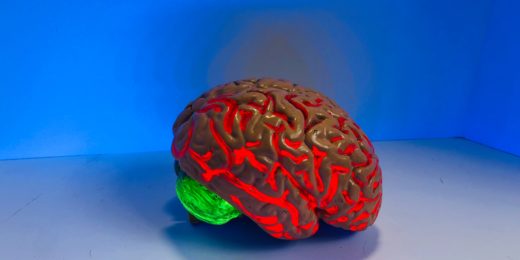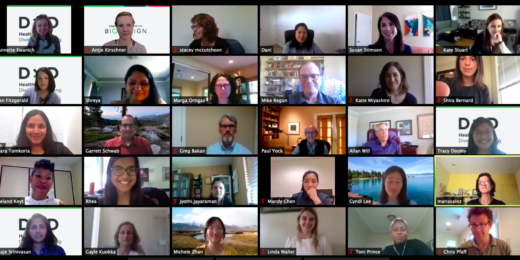Friends and colleagues, Stanford nephrology fellows Daniel Watford and Dimitri Augustin trained alongside each other in Florida and then both moved west.
Month: July 2020
Nonviolent de-escalation strategies in emergency medicine
A Stanford physician discusses how he's learned to safely manage intense situations with patients in emergency departments.
Many early COVID-19 studies have low-quality design, risk low-value evidence, research finds
Many early clinical studies of COVID-19 fail to meet quality standards, raising concerns that the data could be of little meaningful use, research finds.
Stanford postdoc helps create Black in Neuro Week
Stanford postdoc Brielle Ferguson helped to organize a project called 'Black in Neuro Week' to amplify Black scientists in neuroscience.
Device could help patients test blood ammonia levels at home
After treating a patient with an unusual ammonia metabolism problem, a Stanford researcher assembled a team to reimagine ammonia blood testing.
Why the blood-brain barrier is really a filter, and what this means for the aging brain
Stanford-led research finds that the blood-brain barrier may be much more permeable -- albeit selectively so -- than previously thought.
Remembering Rep. John Lewis: A Civil Rights icon’s words to Stanford students
Rep. John Lewis, who died July 17, 2020, was interviewed in April 2019 for a Stanford Medicine course on leadership and finding moral identity.
Genetic edit protects against transplanted cells that go rogue
Stanford researchers and colleagues have invented a genetic safety mechanism that can deactivate transplanted cells if they change in a problematic way.
Message to family caregivers: There’s help, even during COVID-19
Experts from the Stanford Caregiver Center offer help for people doing the sometimes overwhelming work of caring for ill or vulnerable loved ones.
Why air pollution is linked to severe cases of COVID-19
A Stanford researcher discusses how toxic pollutants can make people more susceptible to COVID-19 and why people of color are particularly vulnerable.
Promoting diversity and inclusion as a medical student at Stanford
In the Spotlight: Stanford medical student Claire Rhee decided to take a stand on social justice long before she chose to pursue a career in medicine.
Addressing the gender gap in health tech
Through a survey, an initiative and a speed-mentoring event, the Stanford Byers Center for Biodesign is taking on gender inequalities in health tech.
States allow misleading claims that cannabis can treat opioid addiction
Stanford-led research examines state rules allowing dispensaries to make erroneous claims about the effectiveness of cannabis in treating opioid addiction.
High blood pressure drugs don’t increase COVID-19 risk, Stanford study finds
People taking two common types of drugs for hypertension are at no heightened risk, as has been feared, for increased severity or complications of COVID-19.
Using technology to improve health in America’s rural West
A new white paper from Stanford Medicine and the Bill Lane Center for the American West explores the challenges and promise of telehealth solutions.
Seeking a less-burdensome treatment for Diamond Blackfan anemia
Stanford researchers have found a good drug target for treating Diamond-Blackfan anemia, a genetic disease that impairs red blood cell formation.

















